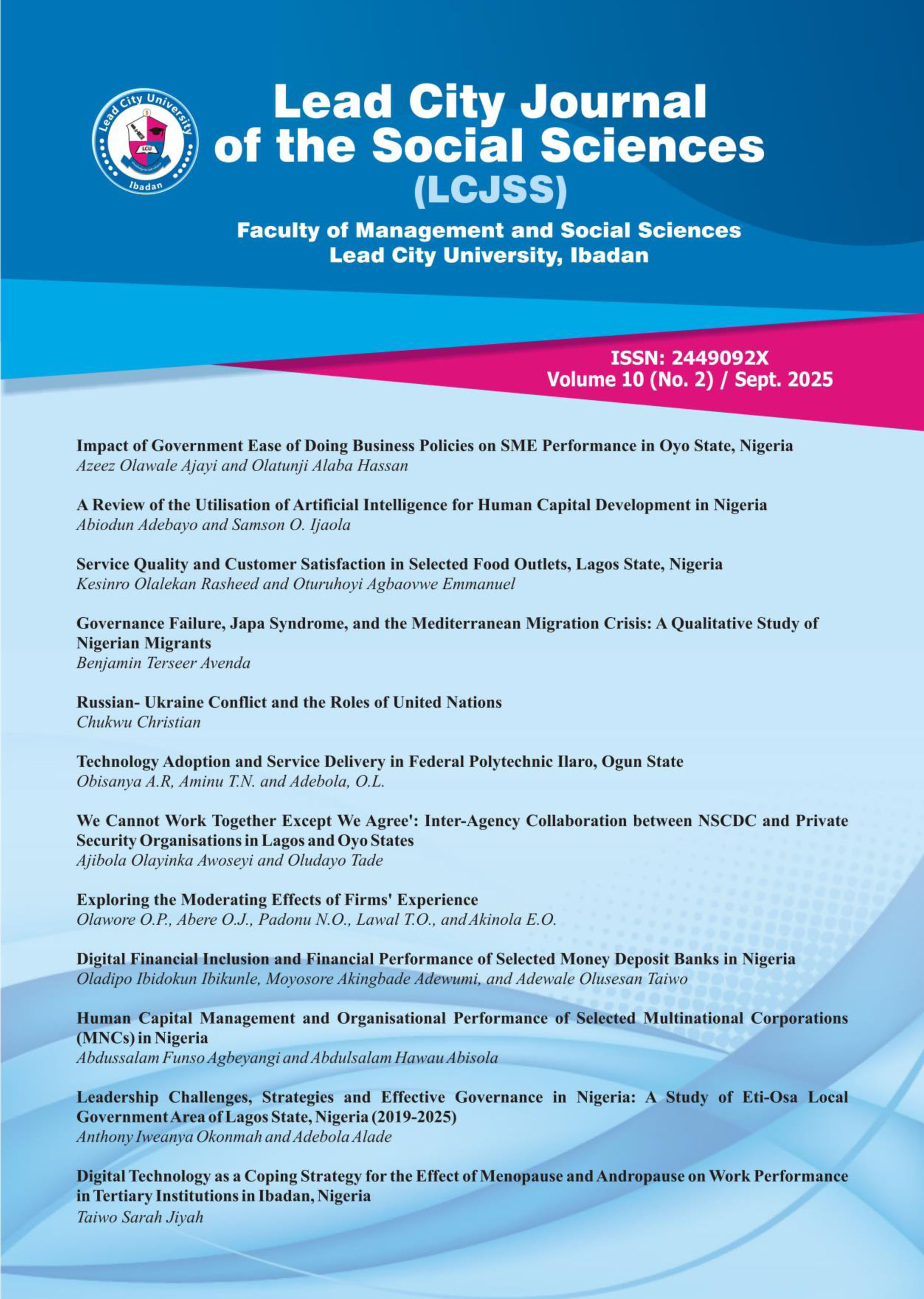Impact of Government Ease of Doing Business Policies on SME Performance in Oyo State, Nigeria
Keywords:
Government Policies, SME Performance, Access to Finance and Business Registration ReformsAbstract
This study examines the impact of government Ease of Doing Business (EoDB) policies on the
performance of SMEs in Oyo State, Nigeria, focusing on business registration reforms,
financial accessibility, and taxation. This study addresses a critical gap in research on localised
policy implementation by employing institutional theory and the resource-based view to
analyse the regulatory effects on SMEs. A mixed-methods approach was employed, combining
surveys from 450 stratified-randomly selected SMEs with qualitative interviews, evaluated
through hierarchical regression and thematic analysis. Key findings reveal that while
registration reforms reduced processing times (68% completed within 14 days compared to
42% before the reforms), operational efficiency remained static. Only 18% of respondents
secured loans, with rural SMEs disproportionately disadvantaged (7% approved versus 32%
for urban SMEs). Tax compliance costs constituted 14.2% of income, whereas 87% of
respondents faced unauthorised fees, leading to an 18% decline in productivity. The analysis
indicates that current policies inadequately address structural imbalances, disproportionately
affecting micro and rural enterprises. Recommendations include structured formalisation
initiatives, enhanced financial inclusion, and rigorous actions against exorbitant fees to foster
equitable growth of SMEs

